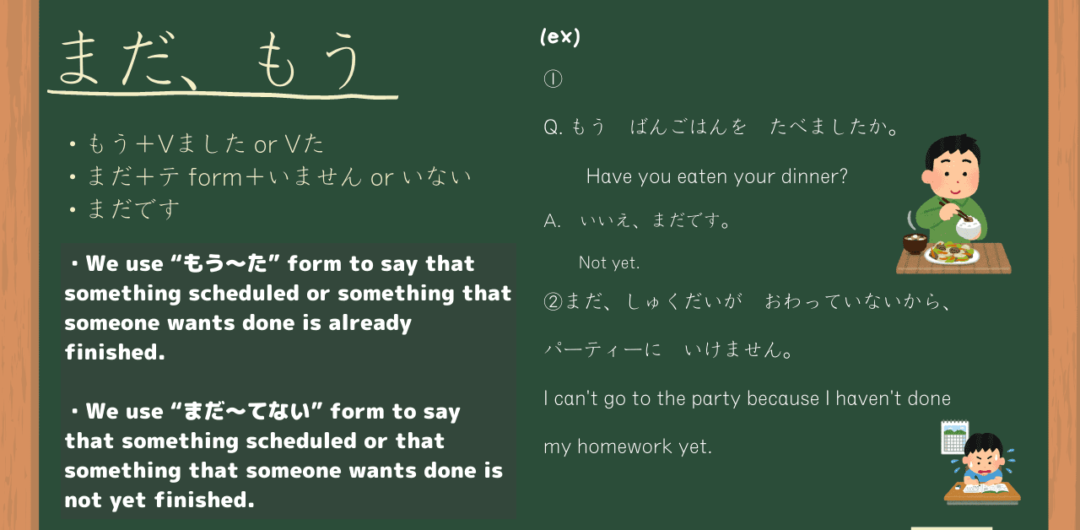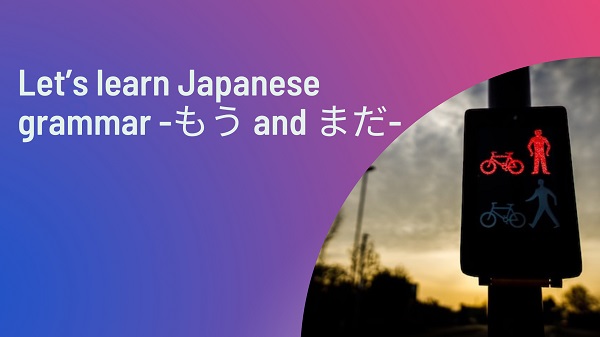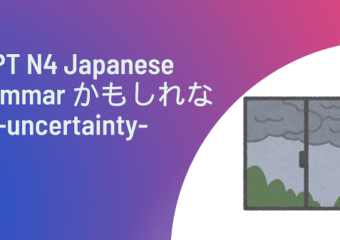When you want to ask your friends if they’ve finished eating their dinner, how can you ask it in Japanese?
If someone asked you if you’ve finished eating your dinner, how can you answer the question in Japanese?
In this article, I will teach you how you can ask if they’ve done something and how you can answer their questions.
*Are you looking for a place to practice Japanese?
Youtonihongo is for you.
You may receive one free 30-minute trial lesson.
もう~た
We use “もう~た” form to say that something scheduled or something that someone wants done is already finished.
Conjugation
もう+Vました or Vた
If you don’t know what タ form is, please read this article.
Japanese verbs conjugation-past tense
Let’s see some examples.
Have you finished your dinner?
In this case, they’re asking if you’ve already eaten your dinner.
Have you finished your homework?
In this sentence, they’re asking if you’ve already finished your homework .
As these examples, we use もう to express if something has been already done.
まだ~てない
We use “まだ~てない” form to say that something scheduled or something that needs to be done is not yet finished.
You can also say that “まだです”.
Conjugation
まだ+テ form+いません or いない
If you don’t know what テ form is, please read this article.
Learning Japanese conjugation te form
Let’s see an example.
I haven’t finished eating yet.
In this case, someone asks if you’ve already finished eating, and you answer not yet.
Please keep in mind that まだ たべていません expresses the current situation, you are mentioning that you are not done yet.
まだ たべません means that you don’t want to eat now, you will probably eat later.
Therefore, if you want to explain that you haven’t done something yet, you should use ていません.
conclusion

We use “もう~た” form to say that something scheduled or something that someone wants done is already finished.
Conjugation
もう+Vました or Vた
We use “まだ~てない” form to say that something scheduled or that something that someone wants done is not yet finished.
You can also say that “まだです”.
Conjugation
まだ+テ form+いません or いない
Exercise
Please change to proper form.
① もう しゅくだいを (します→ )か。
② もう シャワーを (あびます→ )か。
③ もう あのえいがを (みます→ )か。
④ もう そうじは (おわります→ )か。
⑤ もう あそこの レストランは (いきます→ )か。
⑥ まだ ごはんを (たべます→ )いません。
⑦ まだ かいものに (いきます→ )いません。
⑧ まだ てがみを (かきます→ )いません。
Please choose correct word.
⑨ さくらは、(まだ・もう)さいていません。
⑩ かぜは(まだ・もう)よくなりましたか。
Answer
① もう しゅくだいを (します→しました)か。
② もう シャワーを (あびます→あびました)か。
③ もう あのえいがを (みます→みました)か。
④ もう そうじは (おわります→おわりました)か。
⑤ もう あそこの レストランは (いきます→いきました)か。
⑥ まだ ごはんを (たべます→たべて)いません。
⑦ まだ かいものに (いきます→いって)いません。
⑧ まだ てがみを (かきます→かいて)いません。
⑨ さくらは、(まだ・もう)さいていません。
⑩ かぜは(まだ・もう)よくなりましたか。
If you have questions, please comment below.
If you’d like to learn more Japanese, please feel free to contact me.
I teach Japanese in-person or online.
You can also learn Japanese on my Instagram page.

The free trial class online
We offer online classes and in person classes



